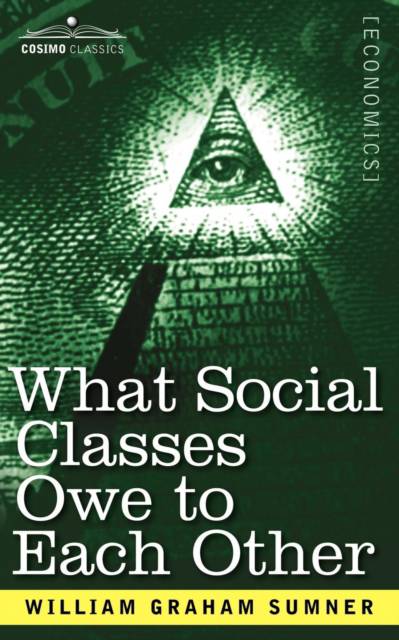
- Afhalen na 1 uur in een winkel met voorraad
- Gratis thuislevering in België vanaf € 30
- Ruim aanbod met 7 miljoen producten
- Afhalen na 1 uur in een winkel met voorraad
- Gratis thuislevering in België vanaf € 30
- Ruim aanbod met 7 miljoen producten
Zoeken
€ 21,95
+ 43 punten
Uitvoering
Omschrijving
The title of this 1883 classic of laissez-faire economics and sociology is ironic: the social classes do not, the author concludes, owe each other anything. Demolishing the theory of group obligation and fully embracing the concepts of dog-eat-dog social Darwinism, Sumner rages against the notion that the educated and wealthy have any obligation to the poor and uneducated, declares that the men should simply pull themselves out of poverty, deems taxes an obscenity and universal suffrage "immoral and vicious," dismisses the idea of "natural rights," and decries anything other than "every man for himself." A stunning evocation of modern libertarianism taken to its logical extreme, What Social Classes Owe to Each Other presents a bleak vision of contemporary industrial society... one valuable for those on all sides of the issue to understand and appreciate. American academic and author WILLIAM GRAHAM SUMNER (1840-1910) was an influential professor of sociology and politics at Yale College and president of the American Sociological Association from 1908 to 1909. He wrote numerous and varied books including Andrew Jackson as a Public Man (1882) and Folkways (1906).
Specificaties
Betrokkenen
- Auteur(s):
- Uitgeverij:
Inhoud
- Aantal bladzijden:
- 152
- Taal:
- Engels
Eigenschappen
- Productcode (EAN):
- 9781602067592
- Verschijningsdatum:
- 1/09/2007
- Uitvoering:
- Paperback
- Formaat:
- Trade paperback (VS)
- Afmetingen:
- 127 mm x 203 mm
- Gewicht:
- 172 g

Alleen bij Standaard Boekhandel
+ 43 punten op je klantenkaart van Standaard Boekhandel
Beoordelingen
We publiceren alleen reviews die voldoen aan de voorwaarden voor reviews. Bekijk onze voorwaarden voor reviews.











